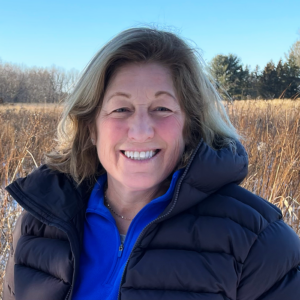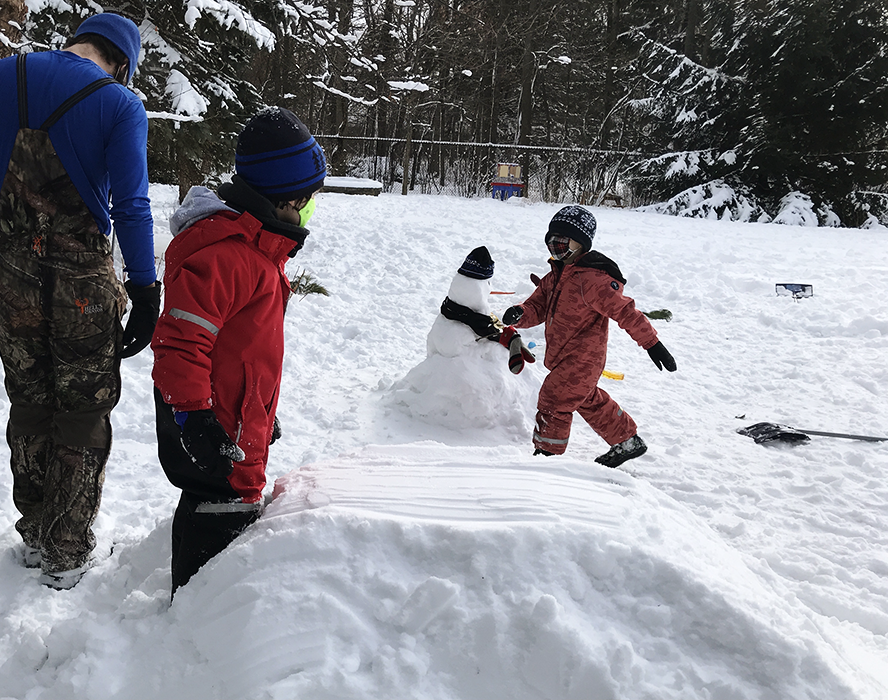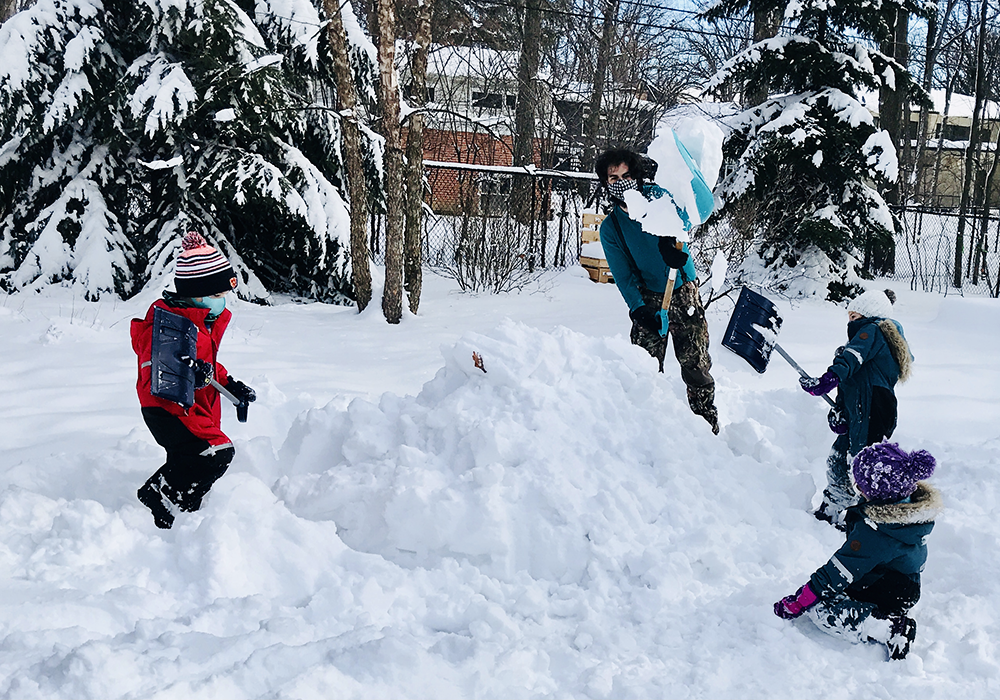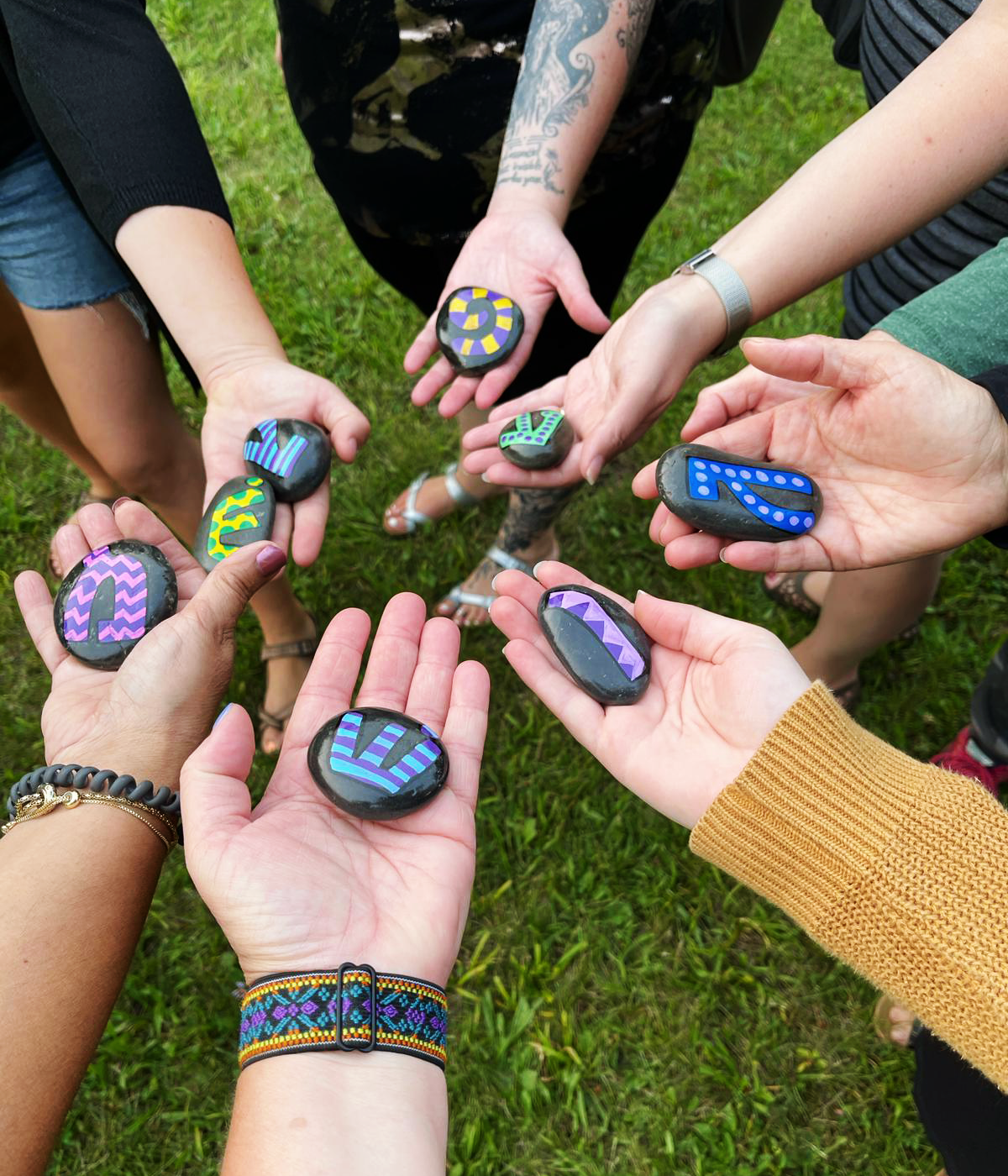
Written by Margie Pines
Founder & Director at Ta'am Teva
During a recent snowy week, the children started making a big pile of snow with their shovels. As the pile got bigger and bigger the children decided they were building a mountain. However, not everyone agreed on how the mountain should be shaped or where the snow should be placed. There were numerous disagreements on how the process should go and when their goal would be accomplished. Some children were sliding down the structure causing it to fall apart. Others were determined to keep shoveling so that the mountain would be higher. Several children went off to build their own personal snow structures.
Teachers observed the play but tried not to interrupt the discussions. Allowing children time and space to disagree and work out problems is important. They need space to develop social skills like verbalizing feelings, communicating ideas and working cooperatively. Too often adults view these disagreements as a nuisance and something to quash immediately. Adults might want to intervene before a conflict occurs in order to keep the peace. What if we viewed these disagreements as opportunities to develop democratic life skills instead?
Giving children the opportunity to disagree and work out conflicts can provide them with valuable experiences on how to listen to others and work towards acompromise. How else will they learn these skills if they aren’t given time and space to argue while being supervised in a safe setting? Of course, teachers should intervene in certain situations where a child may be harmed. However, too often I find myself on the verge of stopping a discussion simply because I don’t like listening to the sometimes heated debate. That type of intervention doesn’t serve the best interests of the children.
In this situation, the children eventually started working together again as they decided that the goal of having a tall mountain was more important than each person getting exactly what they wanted. They started cooperating by carrying sleds full of snow and helping each other reach the top. It was amazing to watch them playing on a mountain they created after days of debate and compromise. We want our children to grow up to be good global citizens but we need to remember that democracy can be messy, just like children on a playground.


Written by Margie Pines
Founder & Director at Ta'am Teva
During a recent snowy week, the children started making a big pile of snow with their shovels. As the pile got bigger and bigger the children decided they were building a mountain. However, not everyone agreed on how the mountain should be shaped or where the snow should be placed. There were numerous disagreements on how the process should go and when their goal would be accomplished. Some children were sliding down the structure causing it to fall apart. Others were determined to keep shoveling so that the mountain would be higher. Several children went off to build their own personal snow structures.
Teachers observed the play but tried not to interrupt the discussions. Allowing children time and space to disagree and work out problems is important. They need space to develop social skills like verbalizing feelings, communicating ideas and working cooperatively. Too often adults view these disagreements as a nuisance and something to quash immediately. Adults might want to intervene before a conflict occurs in order to keep the peace. What if we viewed these disagreements as opportunities to develop democratic life skills instead?
Giving children the opportunity to disagree and work out conflicts can provide them with valuable experiences on how to listen to others and work towards acompromise. How else will they learn these skills if they aren’t given time and space to argue while being supervised in a safe setting? Of course, teachers should intervene in certain situations where a child may be harmed. However, too often I find myself on the verge of stopping a discussion simply because I don’t like listening to the sometimes heated debate. That type of intervention doesn’t serve the best interests of the children.
In this situation, the children eventually started working together again as they decided that the goal of having a tall mountain was more important than each person getting exactly what they wanted. They started cooperating by carrying sleds full of snow and helping each other reach the top. It was amazing to watch them playing on a mountain they created after days of debate and compromise. We want our children to grow up to be good global citizens but we need to remember that democracy can be messy, just like children on a playground.


